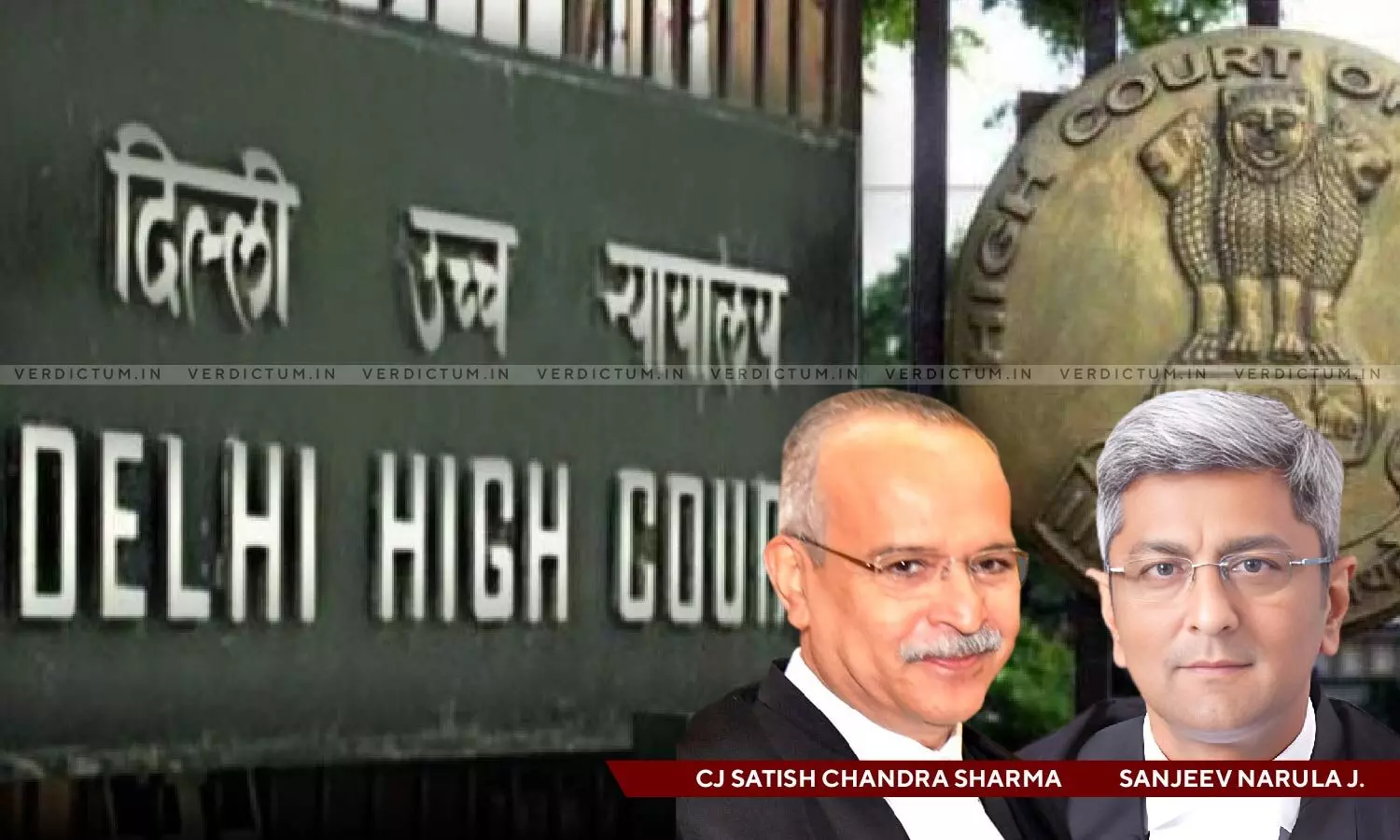
Delhi HC Prescribes Interim Measures For Filing Procedure In District Courts Until Standardized Online Filing System Is Implemented
 |
|The Delhi High Court, in a Public Interest Litigation regarding the lack of structure in the administrative process of acknowledging the filing in District Courts, laid down interim measures to be followed to avoid any procedural issues until the Rules Committee establishes and publishes clear rules.
The Court observed that the Standardized Online Filing System will ultimately lead to greater efficiency, transparency, and reliability in the long run.
The Bench headed by Chief Justice Satish Chandra Sharma and also comprising Justice Sanjeev Narula observed, “In view of the foregoing, this Court emphatically recommends the adoption of a standardized online filing system in the Delhi District Courts for the aforementioned filings and submissions. It is crucial that the requisite technological infrastructure be established to support this system. Furthermore, it is essential that lawyers and concerned parties not only have the option to utilize this online method but also receive appropriate training to navigate it effectively. We acknowledge the challenges inherent in such a transition. The initial stages would necessitate the allocation of resources for training and demand adaptability from all stakeholders. However, we are firm in our conviction that, in the long run, this system will usher in an era of greater efficiency, transparency, and reliability”.
Advocate Sahil Ralli appeared for the Petitioner and Standing Counsel Avnish Ahlawat appeared for the Respondent/ State.
A Public Interest Litigation was filed regarding the administrative process of acknowledging the filing of pleadings, documents, and miscellaneous applications in ongoing cases in Delhi District Courts. The Petitioner highlighted that the current filing procedure lacked structure and claimed that the current system results in lost applications or unverified allegations regarding the non-filing of certain documents.
The Court was informed on January 18th, 2023 that the Rules Committee was deliberating on this issue. However, the Court noted that no conclusive resolution has been reached.
The Court emphasized that to ensure transparency and accountability in judicial proceedings, every application, pleading, document, or submission to the Court must be assigned a unique filing number. This helps with traceability and prevents any potential disputes or discrepancies related to their submission, the Court observed. In cases with strict timelines, such as criminal proceedings, commercial courts, and other time-sensitive matters, accurately recording the filing date is crucial. The Court noted that the failure to provide a concrete acknowledgment could jeopardize the fairness and efficiency of the entire process.
The Court directed the District Courts to adhere to the following temporary measures until Court proceedings are streamlined:
“ a. Centralized Filing System: District Courts shall centralize all filings related to ongoing and pending cases, similar to the existing procedure for new cases. This system must provide each submission with a unique filing number and issue an acknowledgment receipt to the party or attorney submitting the documents. Filing of miscellaneous applications, documents, pleadings etc. must be methodically logged at centralized filing counters, overseen by designated personnel. To achieve this, staff recruitment or augmentation may be necessary. The respective Principal District and Sessions Judges are tasked with overseeing this centralized filing mechanism's swift and effective deployment. They must also ensure that the transition is seamless and training is provided to all relevant stakeholders, thereby minimizing the disruptions in court proceedings.
b. Temporary Inward Dak Register: Until the above measures are in place, Court Masters in all the District Courts are instructed to maintain an inward dak register. Filings related to miscellaneous applications, documents, pleadings etc. will be logged by the Court Master, who will issue an acknowledgment number to the filing counsel/ parties. This temporary system shall cease once the centralized filing is operationalized.
c. Pilot and Oversight: The Patiala House Court will serve as a testing ground for implementing the centralised filing on trial basis. Following a review by this Court, the system may then be rolled out to other District Courts.
d. Online Transition: Although a system for online filing of new cases is in existence, we are informed that the same does not provide for filing of miscellaneous applications, documents, pleadings etc. in the cases pending adjudication. In this regard, it is noticed that the Principal District and Sessions Judge, Dwarka Court, has issued an “Advisory for Filing of Cases/ Caveat/ Misc. Applications/ Bail Applications/ Misc. Documents Etc.” on 26th July, 2022, which inter alia permits filing of miscellaneous applications through the online portal [https://efiling-dl.ecourts.gov.in]. Noticing that there is no consistency in the procedure for online submissions of documents/ applications, we direct all the District Courts to augment their existing online filing system to incorporate a procedure for filing of miscellaneous applications, aligning them with the existing procedure for new cases. They shall also publish a manual/ handbook/ tutorial elucidating the procedure for e-filing documents by counsel/ parties, with relevant screenshots, on their website. The Information Technology Committee of this Court is requested to extend necessary aid to the District Courts for integration and operationalisation of the online filing system”, the Bench held.
Accordingly, the Court listed the matter for October 9.
Cause Title: Karan S. Thukral v The District & Sessions Judge & Ors